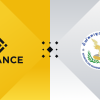What investments should you make during a crisis to grow your wealth? We break down the strengths of buying real estate and of buying stocks, to assist you in your decision-making process.
Between real estate and stocks, both have their share of pros and cons, and comparing which is better would be akin to comparing apples and oranges. When it comes to growing an investment portfolio, one’s choice of investment product is highly dependent on personal factors varying from risk appetite, goals, and financial capability
Q1 2020: The Great Lockdown
The coronavirus pandemic has resulted in both a humanitarian and economic crisis at an unprecedented scale. Unlike previous region-specific crises, the full impact of the coronavirus spans across continents and countries in both developed and developing stages.
Across the world, governments have implemented various lockdown measures, causing behemoth changes in the state of work and play at a magnitude unlike anything we have ever seen before. Across many sectors, business activity has slowed almost to a halt, and the economic impact of these lockdown measures are grave: Q1 figures from the International Monetary Fund (IMF) report a 36.6% drop in GDP in China, 21.3% record GDP decline in France and a 19.2% decrease in GDP in Spain.
Q2 2020: Emerging from lockdown
Following a sharp fall in mid-March that saw the abrupt end to a decade-long US-led bull market, reopening of economies worldwide have led to a strong rebound of the global equity market. Market data in the second quarter of this year has shown sharp recoveries.
For those reviewing their investment portfolios and deciding on a revised buying strategy, we break down the different strengths of two key asset classes: Property and stocks.
Real Estate: Golden opportunity for negotiating
In a down market, the scope for buyer negotiation is high.
In an economic downturn, especially one such as the coronavirus-induced one in which economists are unable to predict a tangible outlook, buyers are less willing to financially commit to buying property.
As the number of COVID-19 cases remain ever fluctuating and unpredictable, great uncertainty about the duration of ‘crisis time’ prevails, thus increasing risk aversion among people, especially for large purchases like real estate.
Consequently, in order to sell property in a down market, sellers looking to sell before the recession hits would have dropped their now-unrealistic asking prices. Release of Q1 statistics from Singapore’s Urban Redevelopment Authority (URA) have indicated that prices have dropped: private residential property prices have decreased by 1% in the first quarter of this year, compared to a 0.5% increase in Q4 2019. For real estate investors, this makes it optimum time to acquire new property as room for negotiation is high.
Appetite for Volatility: Real Estate Investing offers less volatility than Stocks
Investing in Real Estate is often viewed as a safer, more stable option. In land-scarce Singapore, demand for land would only continue to rise with the years, with dips during down markets but assured recovery thereafter- something that cannot be as easily said for stocks.
Singapore Private Property Price Index
As it is the case with all investment products, buying and selling at the right time is paramount, of which the identifying of optimum timing is affected by the stability of the market. In a more volatile market, investors have to work with much less decision time when buying and selling, thus increasing the risk of losses.
Unlike the high volatility in the stock market where prices of stocks peak and trough rapidly and dramatically in short amounts of time, disruptions to the real estate market do not usually occur as explosively. The value of your properties will seldom change as often as stocks, and also would not be likely to change drastically in terms of percentages.
This means that when it comes to watching over one’s portfolio, a person would have to watch his or her stocks portfolio more frequently than the property portfolio. During a black swan event such as the coronavirus-induced economic instability, investors will have to watch markets closely and rebalance their portfolios constantly, steering away from stocks in more vulnerable companies in hard-hit industries and more. On the other hand, one can afford to tweak property investment portfolios every few years.
Inflation-proofing: Real Estate hedges against inflation
Property values react proportionally to inflation levels, increasing with increased inflation, thus shielding homeowners and investors against their money’s decreasing purchasing power. Historical studies [1] in Singapore have found that real estate provides a better hedge against inflation than stocks. In the long term, adding real-estate to your portfolio could go a long way in preserving your purchase power, especially in the post-recession inflation climb.
Investing in Stocks: Modest Starting Point, High Liquidity
Stocks are highly liquid, and can be bought and sold quickly, being able to accommodate whenever the investor’s need for money arises. On the other hand, selling a property in Singapore would take several months, and possibly even longer in a down market such as this.
Given the vast economic uncertainty of the COVID-19 outbreak, it’s hard to predict when one might suddenly need to tap into emergency cash funds, triggered by potential furlough measures or retrenchment as a result of companies facing threatened survival. When it comes to investing in such unchartered waters, lower financial commitment to investments and high liquidity may be of advantage to investors with more uncertainties in their cash flow should there one day arise a need to offload these investments.
The lower amount of capital needed for investing in stocks also presents itself as a desirable option for investors who are prioritising the need to build up savings at this time, or have greater worries about being cash-strapped while waiting out the coronavirus-triggered instability.
Final Note: The Bottom line of investing
At the end of the day, declaring real estate or stocks a “better” choice over the other also entails discussing on whose terms is one choice better than the other – investing choices are highly unique to individual circumstances as well as risk appetites. Both options have their unique risks and rewards, hence the need for diversifying one’s portfolio to maximise return and reduce risk- a need investors recognise with surety, hence often choosing both options.
[1] Tien-Foo National and Swee-Hiang Low (2000) The Inflation-Hedging Characteristics of Real Estate and Financial Assets in Singapore. Journal of Real Estate Portfolio Management: 2000, Vol. 6, No. 4, pp. 373-385.
















